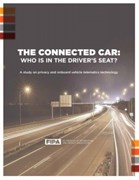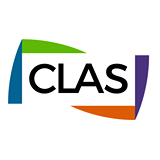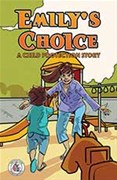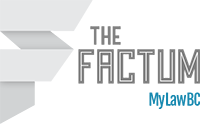Organization of the Month | July 2017
This month, we feature Community Legal Assistance Society (CLAS), a Clicklaw contributor.
Meet Samrah
Samrah Mian is the Intake Coordinator for the Community Law Program at CLAS. Samrah acts as the first point of contact for all clients and advocates accessing the Community Law Program’s services. She listens to their stories, gleans relevant information, helps clients gather documents from various sources in order to complete a program intake, and links clients and callers to other resources and referrals when appropriate. She also plays a role in community outreach, public legal education and research, and works towards program goals surrounding residential tenancy.
at CLAS. Samrah acts as the first point of contact for all clients and advocates accessing the Community Law Program’s services. She listens to their stories, gleans relevant information, helps clients gather documents from various sources in order to complete a program intake, and links clients and callers to other resources and referrals when appropriate. She also plays a role in community outreach, public legal education and research, and works towards program goals surrounding residential tenancy.
Thanks for talking to me today, Samrah. Can you tell me more about what you do?
I was hired about a year ago at CLAS, in a newly created position, intended to streamline and simplify intakes with the hope that clients could quickly reach someone who would be able to help them immediately and that this would lessen the load on the rest of the program staff.
What I truly appreciate is the diversity of the work that my job involves. I’ve been given the opportunity to become involved in public engagement, conducting research and learning more about poverty law topics that interest me.
Can you tell me more about what your Community Law Program (CLP) is working on?
 Besides providing direct services to hundreds of people every year, we’re involved in a number of systemic advocacy actions.
Besides providing direct services to hundreds of people every year, we’re involved in a number of systemic advocacy actions.
Our program is active in lobbying for changes to residential tenancy laws and procedures at the Residential Tenancy Branch (RTB). We supported the new legislative amendments that allowed tenants fleeing family violence to be able to end their fixed-term tenancies early and we actively work with the RTB to improve practices.
Outside of residential tenancy, our recent work includes a case that resulted in the repeal of discriminatory income assistance policies and we are currently challenging the validity of forced psychiatric treatments under the Canadian Charter of Rights and Freedoms. We also intervened at the Supreme Court of Canada in a human rights case that will determine whether the BC Human Rights Tribunal can deal with complaints of workplace harassment involving co-workers, customers, contractors and other non-supervisory personnel in the workplace.
Very cool to hear. What about your direct services? When should people refer to CLP?
Here’s a handy chart:
| A good time to refer to CLP | Not a good time to refer to CLP |
|---|---|
| Your client has received an Order of Possession from the Residential Tenancy Branch and is required to leave their home | Your client has received a Notice of Eviction from their landlord |
| After a co-op board meeting, your client’s membership has been terminated | Your client is receiving letters from their co-op that threaten to cancel her membership if she doesn’t comply with their terms |
| Your client has been served with court papers from the bank holding the mortgage in the house that they live in | Your client has missed a mortgage payment |
| Your client has received a decision from the Workers Compensation Appeal Tribunal | Your client has received a decision from a WCB officer |
| Your client has received a decision from the Social Security Tribunal or the Employment and Assistance Appeal Tribunal | Your client has been told that they are not eligible for income assistance by a government branch such as the Ministry of Social Development and Social Innovation (now Social Development and Poverty Reduction) |
| Your client has had a human rights tribunal hearing and lost the hearing | Your human rights claim has been accepted and you are seeking representation (in this case, the Human Rights Clinic would be a good referral) |
| Your client has received a decision from the Employment Standards Tribunal | Your client is being harassed by their employer and want to file a complaint with the Employment Standards Branch |
| Your client has received a decision from the Mental Health Review Panel or is being detained under the Adult Guardianship Act or has been issued a Certificate of Incapability under the Adult Guardianship Act | Your client has been involuntarily detained under the Mental Health Act (if they have applied for a review panel hearing, they can apply to the Mental Health Law Program for representation) |
Fantastic. I think that will be an excellent tool for people to have when making referrals. Anything else CLP is working on that you’re excited about?
We’re currently building self-serve website called BC Judicial Review Self-Help Guide where self-represented litigants can walk through the judicial review process and download templates that will make it easier for them to file for a review. In the past, this used to be a very long PDF but we’ve updated it to make it easier to follow. We’re also making different ‘streams’ for different legal issues. We currently have the residential tenancy and workers’ compensation streams up and we’ll be working on human rights and some other tribunals soon.
What’s the biggest misconception that people have about CLP?
One big misconception is that we can represent all clients in all types of legal matters for free!
The legal services that we provide through the Community Law Program are free of charge but, in reality, our program mandate is limited. We’ve done some work to spread awareness about this fact but we still get the occasional phone call from a client who wants our help in suing their dentist.
Our primary intake criteria is assisting low-income clients resolve their legal disputes when they have a decision from an administrative tribunal in the areas of work-related legal issues, human rights, government benefits, housing, and mental health law. In addition, we can also help individuals when their co-op membership is terminated, we can provide advice to low-income homeowners when their house is being foreclosed upon and we can help with certain situations in regards to adult guardianship.
CLAS serves the entire province of BC, and our other programs include the BC Human Rights Clinic, the Community Advocates Support Line and the Mental Health Law Program.
Thanks for clearing that up. I hope this helps spread the word, and better connects people to CLAS.
Me too. Speaking of connecting, we are holding our Working CLAS Blues fundraiser on October 26, 2017. If you’re in the lower mainland, we’d love it if you could join us for a night of music, dancing and social justice. Contact Dianne Bankay dbankay@clasbc.net for more information.
Sounds like fun. Last question–what’s something you enjoy when you aren’t working?
I volunteer at Battered Women’s Support Services Family Law Information Clinic along with a team of legal interns. I also spend time reading contemporary literature and listening to HowStuffWorks podcasts.







